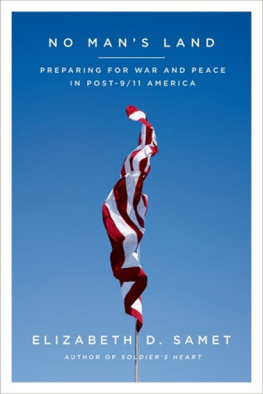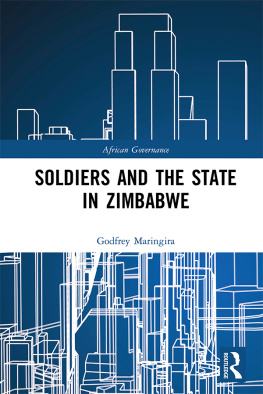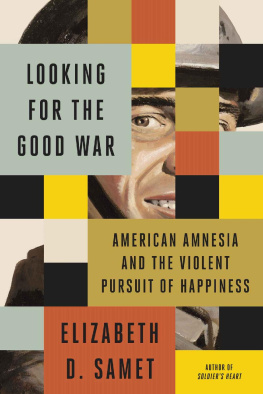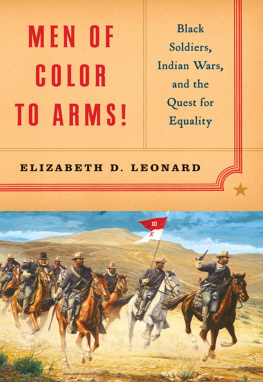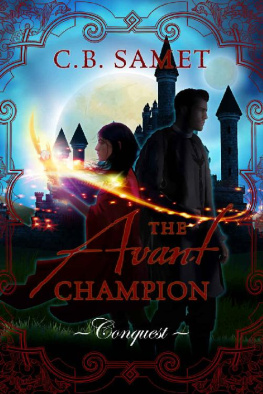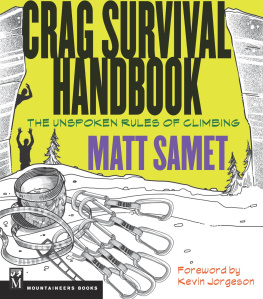
The author and publisher have provided this e-book to you for your personal use only. You may not make this e-book publicly available in any way. Copyright infringement is against the law. If you believe the copy of this e-book you are reading infringes on the authors copyright, please notify the publisher at: us.macmillanusa.com/piracy.
IN MEMORIAM
Captain Daniel P. Whitten
C Company, 1st Battalion, 508th Parachute Infantry Regiment,
4th Brigade Combat Team, 82nd Airborne Division
Killed, Zabul Province, Afghanistan
February 2, 2010
First Lieutenant Christopher S. Goeke
C Company, 1st Battalion, 508th Parachute Infantry Regiment,
4th Brigade Combat Team, 82nd Airborne Division
Killed, Kandahar City, Afghanistan
July 13, 2010
CONTENTS
War is hell.
attributed to Napoleon Bonaparte
There is many a boy here to-day who looks on war as all glory, but, boys, it is all hell.
William Tecumseh Sherman, speech to reunion of veterans, Columbus, Ohio (1880)
War is hell. Its just not the same hell I thought it would be. The suffering and death I expectedthe hell is how stupid it all is.
U.S. Army captain, Afghanistan (September 2011)
AUTHORS NOTE
Much of the motivation for, and many of the ideas within, this book were conceived during a period when in addition to maintaining a correspondence with former students deployed to Afghanistan and Iraq, I was directing West Points freshman literature course, taken by more than a thousand plebes each spring. According to institutional lore, a plebe ranks in the hierarchy just above the superintendents dog and the commandants cat. But to my mind theres no one loftier.
Many of my best-spent hours have been in the company of plebes, finding their way in a new and seldom comfortable world. I like most the person I am with these young men and women. I see in them a vitality that battles against the destruction and death that have marked the centurys beginningan energy that helps me to navigate the perilous no mans land of readying them for whatever future awaits. To all those thousands of plebes, especially to that smaller set of cadets full of spirit and adventure who end up in my own seminar each spring, I owe the happiest of debts.
Long and robust conversations with associates, colleagues, and friends have enriched my response to the confusions of recent years. I am grateful to Nick, Max, Neil, Joey, Adam, Joel, Kevin, Rene, Grant, Emily, Sean, Whitney, Dan, Meghan, Kirsten, Liz, and many others for the correspondence we share. I thank Anne Taranto, Frank Rotondo, Daisy Miller, Seth Armus, Matt Boethin, and Jon Lewis for their long-standing loyalty and kindness. Scott Krawczyk, who now leads the literary way as head of West Points Department of English and Philosophy, is indeed a fit man for the constable of the watch. Damon Durall immeasurably enlivened the plebe course with his thoughtful perspective, unfailing honesty, and tireless labors. I am much the richer for Karin Roffmans conversation, unmatched dedication to our shared enterprise of teaching, and rare gift of tough-minded generosity; and for Suzanne Nielsen, wise and true friend. My parents, as always, have been patient listeners; they have also shared their own memories of life during wartime and peacetime since World War II.
I have greatly appreciated the encouragement and editorial sensibilities of Greg Veis and Frank Wilkinson over the last several years. My agent, David Kuhn, has been wonderfully energizing throughout this process. It has been a great pleasure to work with everyone at Kuhn Projects and FSG. And I am fortunate that my editor, Eric Chinski, is at once the most gracious and careful of readers.
I am grateful to the staff of the Fort George G. Meade Museum for helping me to discover more about the U.S. Armys theater history and to the Special Collections and Archives Division of the United States Military Academy Library.
In a few instances, a name or identifying detail has been changed.
* * *
The opinions expressed in this work are my own and do not necessarily reflect those of the United States Military Academy, the Department of the Army, or the Department of Defense.
PROLOGUE
Earths Melancholy Map
It is not so easy to leave the front line for battalion headquarters; it has magnetized the mind; and for a moment one leans, delaying, looking out over the scene of war, and feeling that to break the horrid silence would be an act of creation.
Edmund Blunden, Undertones of War (1928)
There is a lieutenant ever in my minds eye. Sometimes this phantom acquires the features of lieutenants I have known. At other times it wears an anonymity at once reassuring and unsettling in its promise of emotional distance. Yet no matter its form, my ghost moves always through the same space, through a kind of no mans landthat sinister, broken ground illuminated with such force by the soldier-poets of World War I.
No mans land was associated with wilderness and death for centuries before the phrase came to describe the shattered landscape of the western front. In the Middle Ages the term denoted any stretch of waste or unclaimed land; the fourteenth-century English chroniclers gave the name Nonesmanneslond to a particular piece of ground just beyond Londons north wall where the early Plantagenet kings executed enemies of the state. But the expression acquired a new significance during World War I, when the strip of land running more than 450 miles, from Belgiums North Sea coast to the Franco-Swiss frontier, became a massive killing field.
The imagery of no mans land, made familiar to us through literary, photographic, and cinematic accounts, endures despite the new variations on destruction that technology has worked in the years since. The belts of barbed wire, gaping shell holes, smoking hulks of wrecked airplanes, denuded trees, and rotting corpses rising through the mud have all lingered in the cultural imagination as emblems of a lost generation and a world plunged into disaffected, mechanized modernity. Representations of this world on film remained as full of fantastic terrors in 1957, in Stanley Kubricks Paths of Glory , as they had been decades before in King Vidors Big Parade (1925) or in James Whales Frankenstein (1931), where the World War I veteran Whale found in the features of no mans land an ideal mise-en-scne for the horror genre.
Newly arrived at Passchendaele, in West Flanders, generally regarded as one of the fronts most desolate stretches, Major C.E.L. Lyne of the British Royal Field Artillery declared in 1917, Dante would never have condemned lost souls to wander in so terrible a purgatory Even the birds and rats have forsaken so unnatural a spot You see it at its best under a leaden sky with a chill drizzle falling, each hour an eternity, each dragging step a nightmare. The front had a dreamworlds characteristic exaggeration and distortion. In his novel Under Fire , Henri Barbusse described it as a country peopled with ferocious, luminous apparitions A tempest of hoarse, dull crashes, of furious yells, of the piercing cries of beasts rains down on the earth. Nothing in this landscape could be trusted, not even the senses. Hearing and sight are strained to the utmost, reported Second Lieutenant H. E. Cooper of the Royal Warwickshire Regiment. Tiny noises are magnified a hundredfold. Robert Graves recorded his first naive glimpse into the unknown beyond the first-line trench in his memoir Good-Bye to All That :
The darkness seemed to move and shake about as I looked at it; the bushes started travelling, singly at first, then both together. The pickets did the same. I was glad of the sentry beside me; he gave his name as Beaumont. Theyre quiet tonight, Sir, he said. A relief going on; I think so, surely.
Next page
